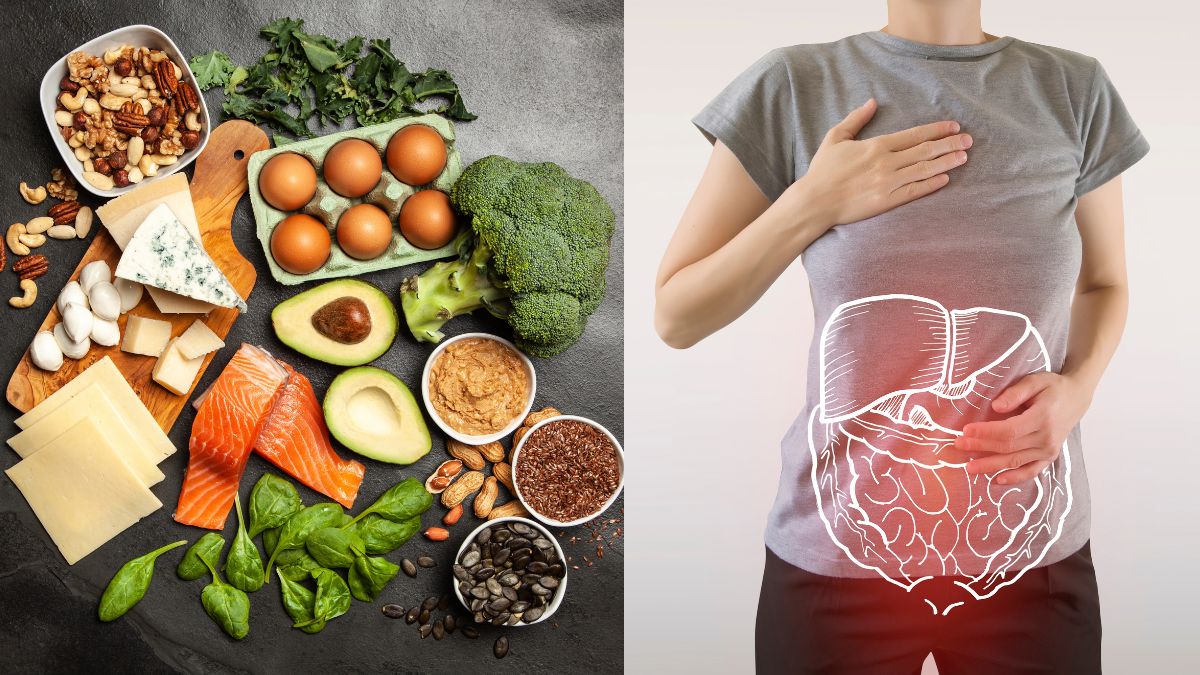- By Prerna Targhotra
- Thu, 22 Feb 2024 03:41 PM (IST)
- Source:JND
Diet And Hormonal Balance: The food we eat has a direct impact on our overall health and well-being. If you consume too much junk food, it will reflect on your body and if you are a healthy eater, it will reflect on your body. You are what you eat. Therefore, it is important to be mindful of our eating habits. According to NIH, food can affect the production and secretion of hormones by direct actions on the gut, by nervous reflexes, through changes in the concentration of various metabolites in the blood, or secondary to changes in circulating gut hormone levels. Making better food choices involves eating a balanced diet that is rich in fruits and vegetables. These foods provide the fibre needed to build good bacteria and guard gut health.
Watch the video below about ways to digest food fast:
In a conversation with Jagran English, Dr Anukalp Prakash, Lead Consultant, Gastroenterology, CK Birla Hospital, Gurugram explained how our diet affects our digestion and hormonal balance.
ALSO READ: Heart Attack And Cardiac Arrest: Understanding The Differences From An Expert
The relationship between diet, digestive health, and hormonal balance is a complex yet crucial part of our gut health. What you eat has a huge impact on your gut. Our gut houses trillions of tiny microbes, collectively known as the gut microbiome. These microbes influence digestion, immunity, and even mood. The food we eat acts as fuel for these microbes, shaping their composition and activity.
A high-fibre diet including fibre-rich fruits, vegetables, and fermented foods, leads to numerous benefits like efficient digestion, boosted immunity, and reduced inflammation. Conversely, processed foods, sugar, and unhealthy fats can promote the growth of harmful bacteria, leading to imbalances that contribute to digestive issues, chronic inflammation, and even certain diseases.
1708597117261.jpg)
Diet And Hormonal Balance (Image Credits: Canva)
Our gut produces a variety of hormones that communicate with our brain, influencing appetite, satiety, and blood sugar regulation. A healthy gut microbiome supports the production of these hormones, leading to better hormonal balance. An unhealthy diet can disrupt hormone production, which can lead to hormonal imbalances like insulin resistance, which is linked to obesity and type 2 diabetes.
ALSO READ: Add These 6 Nuts To Your Diet For Better Heart Health
Certain nutrients, like vitamins, minerals, and antioxidants, play key roles in hormone production and regulation. By prioritising a diet rich in fibre, healthy fats, and whole foods while limiting sugar and processed foods, we can support both our digestive health and hormonal balance. This translates to better nutrient absorption, efficient elimination, and a more regulated hormonal environment, ultimately contributing to overall well-being.

